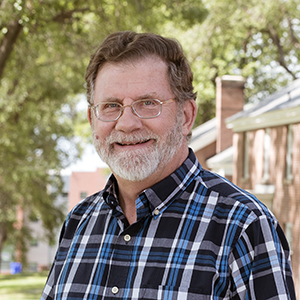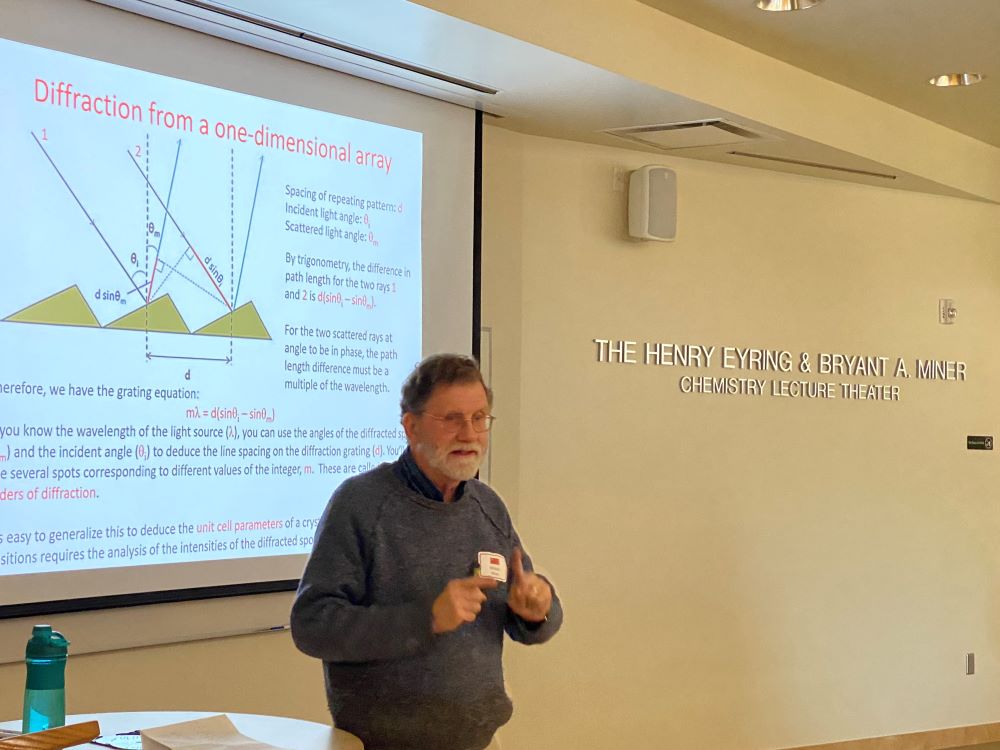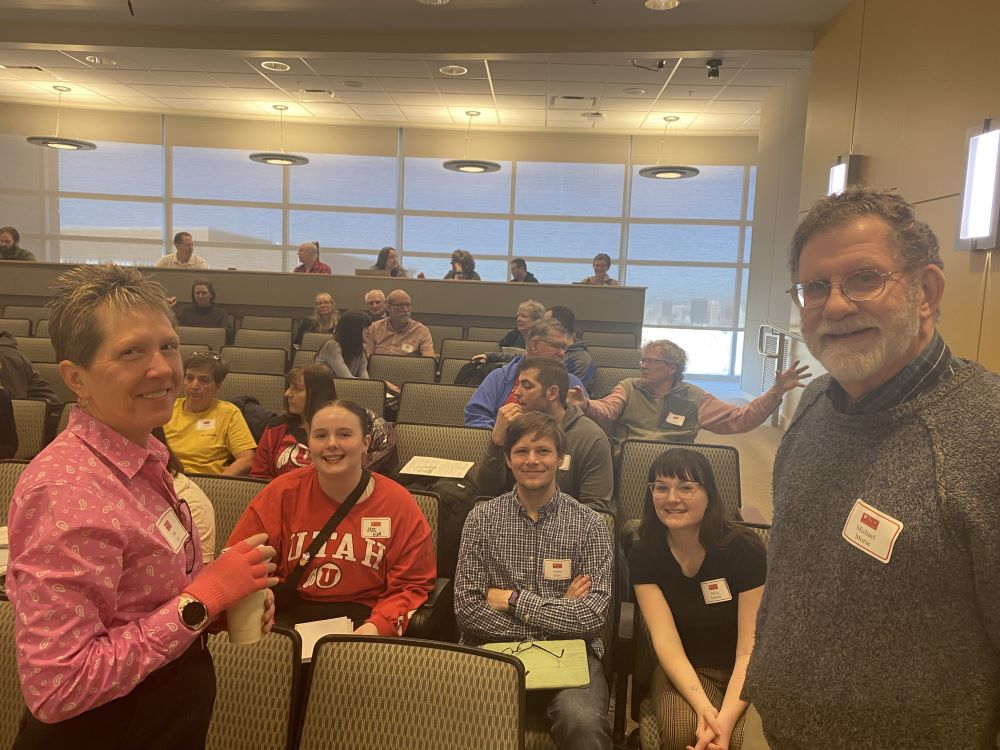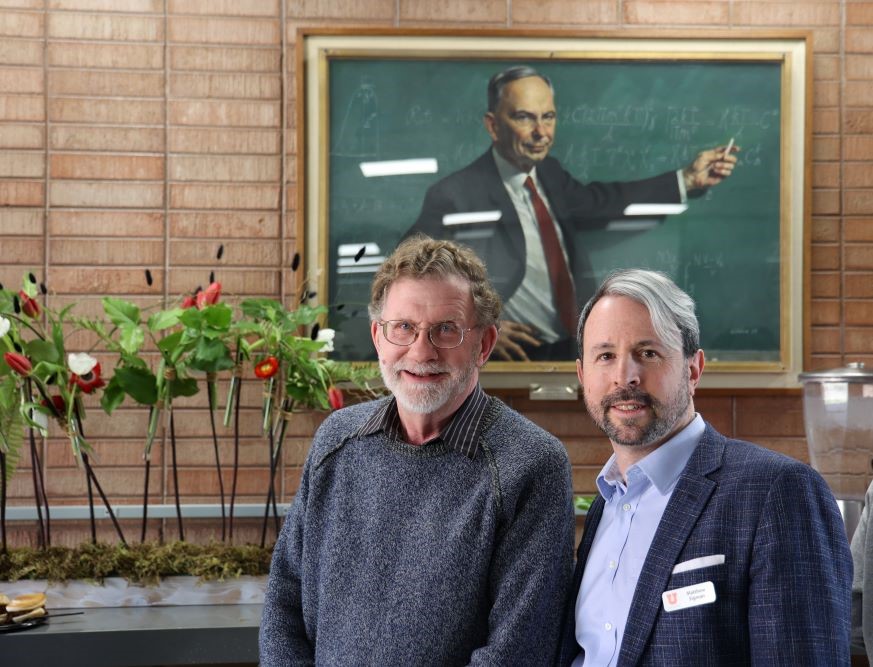Michael D. Morse appointed to the rank of Distinguished Professor

On July 1, 2023, Michael D. Morse was appointed to the rank of Distinguished Professor of Chemistry, University of Utah.
Distinguished Research
Morse began his independent academic career at Utah in January 1985 and immediately set himself up as the foremost authority in his field by writing a sole-author review article for Chemical Reviews on the topic "Clusters of Transition Metal Atoms.” This 1986 review remains Morse's most-cited paper, with 1,646 citations to date. During his first year at Utah, Morse also wrote his first research proposals to the National Science Foundation, the Petroleum Research Fund, and the Research Corporation, all of which were funded on the first application. His work has been funded nearly continuously by the NSF ever since. The Department of Energy has also funded him from 1993-2011 and again from 2021-present and by the Petroleum Research Fund (administered by the American Chemical Society) on 11 separate occasions. Apart from a small one-year grant from the Department of Energy shared between Morse and another faculty member, all of Morse's work has been funded through single-investigator grants that total over $8M. Morse has been awarded both the Distinguished Research Award (1997) and the Distinguished Teaching Award (1999) from the University of Utah.
Morse's research focuses on spectroscopic studies of small molecules that contain transition metals, lanthanide metals, or actinide metals. These are chemically highly important but fiendishly complicated species. Morse's work on these molecules is frequently the first to be reported in the literature and is always definitive. The work is extremely well-regarded and has resulted in his election as a Fellow of the American Association for the Advancement of Science (I993, "for definitive and imaginative experimental and theoretical work detailing the electronic states of metal clusters, particularly dimers, and trimers") and as a Fellow of the American Physical Society (2004, "for pioneering experimental studies of the electronic structure and spectroscopy of small metal molecules in the gas phase, particularly the diatomic transition metal molecules")
More recently, Morse was honored as the 2019 winner of the William F. Meggers Award for "pioneering systematic studies of small transition metal-containing molecules, including precise measurements of bond dissociation energies by the discovery and exploitation of sharp predissociation thresholds in highly congested electronic spectra" by the Optical Society of America. This is an extremely prestigious award; of the 39 awardees since 1985, at least 12 have been elected to the National Academy of Sciences, three have won a Nobel Prize, and one has been awarded the National Medal of Science.
Excellence in Teaching
Michael Morse's teaching is legendary within the chemistry department and has garnered him numerous teaching awards. Following his joining the faculty in 1985, he was awarded the Outstanding Graduate Teaching Award by the Chemistry Student Advisory Committee (ChemSAC) in 1987 and 1990, the Robert W. Parry Teaching Award in I 991, the ASUU Student's Choice Award for Excellence in Teaching in 1998, the University of Utah Distinguished Teaching Award in 1999, and the William W. Epstein Outstanding Educator Award, sponsored by ChemSAC, in 2001 and 2014.
To date, Morse has graduated 25 Ph.D. students and 4 M.S. students. The high fraction of his graduate students who complete Ph.D. degrees rather than leaving with an M.S. degree attests to his success as a mentor. Seven of his students are now professors themselves; one is a chaired professor at Occidental College, and another is Associate Provost for Academic Affairs at Ohio Wesleyan University. Others have gone on to diverse careers in national laboratories, defense laboratories, or private industry.
Morse has also mentored 27 undergraduates working in his group who have been coauthors on 24 papers. Eight have gone on to graduate or medical school, and one is now a professor at Texas Tech University. Morse's recent development of techniques to measure bond dissociation energies are readily understood at the undergraduate level, and this has provided unique opportunities for undergraduates to conduct successful research in Morse's group. Morse's effective mentorship of undergraduates in his research lab was recognized by the College of Science in 2021 with the Award for Fostering Undergraduate Research Excellence.
Leadership in Outreach and Service
Morse has been committed to professional service to funding agencies by participating vigorously in program and proposal reviews for the Department of Energy, the National Science Foundation, the Air Force Office of Scientific Research, the Army Research Office, the Petroleum Research Fund, and the National Research Council of Canada. He routinely reviews about a dozen manuscripts per year for journals such as the Journal of Chemical Physics, the Journal of Physical Chemistry A, the Journal of Molecular Spectroscopy, the Astrophysical Journal, the Journal of Quantitative Spectroscopy and Radiative Processes, and many others. For this service to the profession, Michael was named in the top 20 reviewers for the Journal of Chemical Physics in 2011 and received a Certificate of Reviewing Excellence in 2013 from the Journal of Molecular Spectroscopy.
 I
I
In addition, Morse has been highly active in outreach to the local community of high school chemistry teachers. In 2013, Prof. Morse was asked to present a lecture on photoelectron spectroscopy to a group of local teachers of AP Chemistry, a topic that was a new addition to the AP curriculum. About 50 local teachers attended the lecture, and Morse's lecture was so well received that the teachers asked him to continue giving presentations to help them understand topics about which they were unclear. This event evolved into an ongoing, twice-yearly series of workshops in which Prof. Morse speaks about a scientific topic in chemistry selected by the teachers. (Pictures: Michael Mose at the March 2023 Teacher Workshop, with Gina Frey and a group of Utah teachers, U Chemistry alums).
Comments from Chemistry Colleagues
Peter Armentrout, Distinguished Professor and Henry Eyring Chair of Chemistry, wrote, “In 1986, when I was being recruited by the Department of Chemistry at the University of Utah, one of the main attractions was the collegiality of the department and the existing faculty who had similar research interests. Notable among these colleagues was Prof. Michael Morse, who, in the intervening 35 years, has proven to be an exceptional resource for my research and my students. During the past ten years, Michael has revolutionized the measurement of the bond dissociation energies of diatomic molecules containing transition metals, lanthanides, and actinides.”
Jack Simons, Professor Emeritus and former Henry Eyring Chair of Chemistry said, “I have always appreciated Michael’s strong theoretical component to his science, which derives from his Ph.D. education doing theory under Karl Freed and Stuart Rice in Chicago. His combination of experimental excellence, theoretical foundation, and superb insight also appear in his teaching style and have made him one of the best, if not the best, graduate-level physical chemistry classroom teachers in our department over the past 35+ years. In addition, he is a warm, kind, and generous colleague.”
Peter Stang, Distinguished Professor, and David P. Gardner Presidential Chair, noted, “Professor Michael Morse is the paragon of a gentleman scholar. He and his research group do important and outstanding investigations, using laser spectroscopy to understand the chemical bonding and electronic structure of unusual metal complexes and semiconductor systems. This is both of critical fundamental interest and of value in important applications. Michael is also a wonderful, caring human being ready to assist whenever needed. He has a charming, pleasant personality and gets along very well with all colleagues and students. Hence, he is most deserving of being appointed as a Distinguished Professor and very welcome to the privileges of this position.”
Charles H. Atwood, Professor Emeritus, former Ronald and Eileen Ragsdale Professor of Chemical Education, added, “I have known Michael since 2010 when he recruited me to the University of Utah’s Chemistry Department. Michael Morse’s contributions to the University’s teaching, research, and service missions are extraordinary. His educational service to the University’s students and area teachers is among the best that can be found on campus.”
 Picture: Michael Morse and Matthew Sigman at the 2023 Chemisatry Awards Ceremony.
Picture: Michael Morse and Matthew Sigman at the 2023 Chemisatry Awards Ceremony.
Michael D. Morse joins the list of our present faculty members previously appointed as Distinguished Professors in Chemistry: Scott L. Anderson, Peter B. Armentrout, Cynthia J. Burrows, Joel M. Harris, Shelley D. Minteer, Valeria Molinero, Matthew S. Sigman, Peter J. Stang, and Henry S. White.
